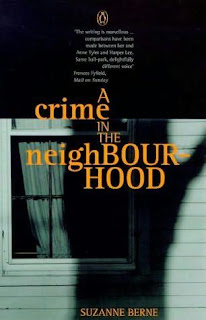 'The Secret History tells the story of a group of classics students at an élite American college, who are cerebral, obsessive and finally murderous ... it is a haunting, compelling and brilliant piece of fiction.' The Times
'Donna Tartt has discovered not the usual collegiate mix of sex, drugs and rock and roll, but a heart of darkness as stony and chilling as any Greek tragedian ever plumbed ...A thinking person's thriller.' Newsday
'The Secret History tells the story of a group of classics students at an élite American college, who are cerebral, obsessive and finally murderous ... it is a haunting, compelling and brilliant piece of fiction.' The Times
'Donna Tartt has discovered not the usual collegiate mix of sex, drugs and rock and roll, but a heart of darkness as stony and chilling as any Greek tragedian ever plumbed ...A thinking person's thriller.' Newsday
Truly deserving of the accolade modern classic, Donna Tartt’s novel is a remarkable achievement – both compelling and elegant, dramatic and playful.
Under the influence of their charismatic classics professor, a group of clever, eccentric misfits at an élite New England college discover a way of thinking and living that is a world away from the humdrum existence of their contemporaries.
But when they go beyond the boundaries of normal morality their lives are changed profoundly and for ever, and they discover how hard it can be to truly live and how easy it is to kill …
About the Author
The Secret History, made her the international literary sensation of 1992. Until the publication of her second book in October 2002, Tartt endured rumours of writer's block and nervous hermithood. But now that The Little Friend is safely in the bag, she says calmly, "it just took a while to write." Trying to meet readers' high expectations after The Secret History was never going to be easy, but Tartt wasn't intimidated by the search for a new idea. She said at the time, "I have my life to resort to."
Raised among the antebellum mansions of Grenada, Mississippi, Tartt experienced the shabby gentility of a changing south. Her extended family members were the stuff of Tennessee Williams and William Faulkner and, for Tartt, "books were the great escape". Fixated by Robert Louis Stevenson and Peter Pan, young Donna was taken on her own imaginative odyssey by her grandfather. A believer in the power of medicine, he fed his granddaughter codeine cough syrup, and much of her childhood was a "languorous undersea existence". A less dubious family contribution was a love of Dickens and Kipling, and Tartt's own storytelling talents were later nurtured at college. Her professor told her she was a genius and, even among classmates such as Bret Easton Ellis, the chain-smoking, Nietzsche-sprouting Tartt cut a dash.
While fellow graduates sought conventional employment, Tartt became a "professional houseguest" who started writing The Secret History. Nine years later, the classical cleverness and adolescent angst of her murderous aesthetes sold millions and meant the author need never again pick up her pen. But despite being translated into 23 languages, Tartt remains "a writer, not a TV personality", whose job it is to "dive deep". Now aged 38, the gamine-featured, pint-sized perfectionist is unfazed by the transitory nature of celebrity, concentrating instead on "the five books I have in me". Of her own style, Tartt remains vague, following Kipling's instructions only to "drift, wait and obey". Her continuing royalties have afforded her as much time to drift and wait as she needs to produce another opus. Her army of fans may be champing at the bit for more of her work, but Donna Tartt remains a defiantly bookish character, "moving a comma round very happily for hours".
There was a ten year gap between Donna Tartt publishing her first book, The Secret History and her second, The Little Friend.
To read an interview with her in the Guardian about both books, click on the link below:
http://www.guardian.co.uk/books/2002/oct/19/fiction.features
A Shadow Falls... - Senior lecturer in English at University College, London, John Mullan deconstructs Donna Tartt's
The Secret History - click on the link to find out more...














